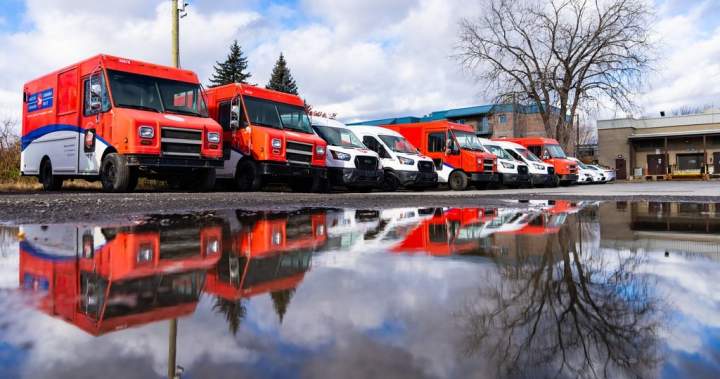The familiar sight of Canada Post vehicles traversing neighborhoods across the nation may soon disappear as nearly 55,000 postal workers begin casting ballots this week on what could trigger the first nationwide postal disruption since 2018.
Starting Monday, members of the Canadian Union of Postal Workers (CUPW) commenced voting on final contract offers from Canada Post, with results expected to be announced by September 13. The vote comes after months of increasingly tense negotiations between the Crown corporation and union representatives.
“We’ve reached a critical juncture where our members must decide whether these offers adequately address their core concerns,” said Jan Simpson, CUPW National President. “The proposals currently on the table fail to properly acknowledge the changing nature of postal work and the increasing demands placed on our members.”
At the heart of the dispute are fundamental differences over wages, working conditions, and job security. Union officials report that postal volumes have shifted dramatically in recent years, with parcel deliveries surging while traditional letter mail continues its steady decline. This transformation has fundamentally altered workloads without corresponding adjustments to compensation or staffing levels.
The strike vote encompasses two bargaining units—urban postal operations and rural mail carriers—each voting on separate offers tailored to their specific working environments. A significant point of contention remains the persistent wage gap between rural and urban postal workers, an issue that Canada News has reported on extensively in previous labor disputes.
Canada Post maintains that its offers are fair and sustainable. In a statement released to CO24 Business, spokesperson Jon Hamilton emphasized the corporation’s commitment to reaching an agreement without service disruptions: “Our proposals balance the needs of our employees with the financial realities facing our organization in an increasingly competitive delivery landscape.”
However, CUPW argues the offers fall short on several fronts. Key issues include inadequate wage increases that fail to keep pace with inflation, insufficient health and safety provisions, and concerns about the increasing use of temporary workers—a practice the union claims undermines job security and service quality.
The potential strike comes at a particularly challenging time for Canadian businesses still recovering from pandemic-related disruptions. According to CO24 News, small and medium-sized enterprises that rely heavily on postal services for order fulfillment and customer communications could face significant operational challenges if mail service is interrupted.
“A postal disruption now would have cascading effects across multiple sectors,” explains Dr. Lucia Fernandez, supply chain economist at the University of Toronto. “From prescription deliveries to government communications and e-commerce fulfillment, the impact would extend far beyond mere inconvenience.”
Both parties acknowledge that the landscape of postal services has transformed dramatically since their last contract negotiations. E-commerce growth has generated record parcel volumes, while traditional letter mail continues its steady decline. This shift has fundamentally altered the nature of postal work, with carriers handling heavier loads and making more frequent stops.
If workers reject the current offers, a strike mandate wouldn’t necessarily mean immediate work stoppage. It would, however, provide union leadership with leverage to potentially return to the negotiating table with stronger bargaining power. The federal government, which has previously legislated postal workers back to work during past disputes, has not yet indicated whether it would intervene in a potential strike.
For Canadians, the potential disruption raises important questions about the future of our postal system. As digital communication continues to reshape how we connect and conduct business, what role should a modern postal service play in Canadian society, and at what cost should we maintain this crucial piece of national infrastructure?

























